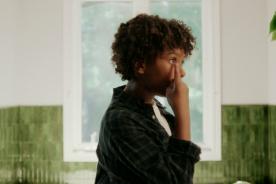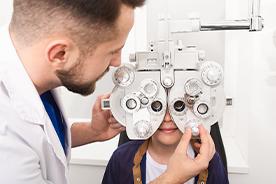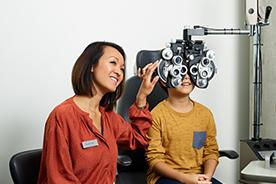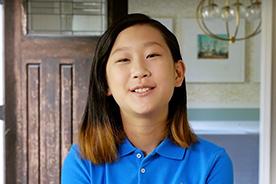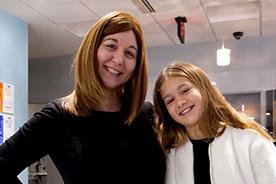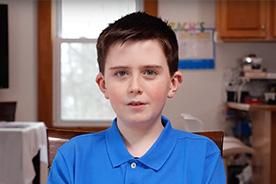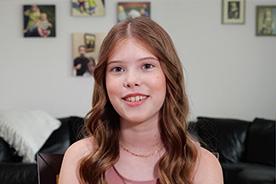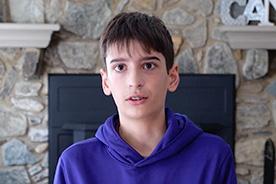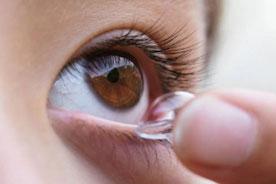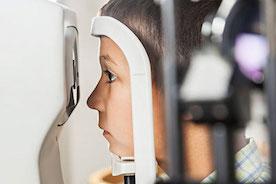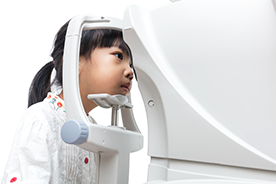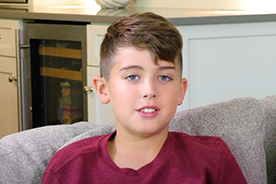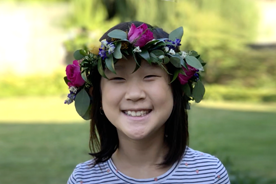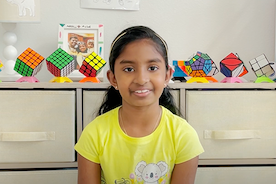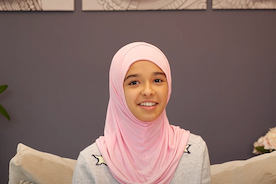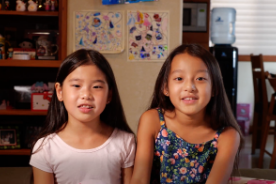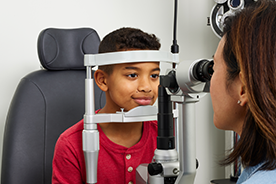At age 11, Violet is an Olympic hopeful. She’s been skating since she was 3½-years-old and has her eyes on winning gold for Team USA. But when the family sat down to watch a skate program on TV, and Violet couldn’t see the score box on the screen, Violet’s mother had a revelation:
“Oh my goodness, she has nearsightedness just like we did when we were younger.”
Both of Violet’s parents wore glasses as children and knew the symptoms of myopia which include squinting, blurry distance vision, and headaches. Myopia, the medical term for nearsightedness, tends to run in families – the chances for a child to develop myopia increase 3x if one parent1 has the condition and 6x if both parents do.2
Myopia occurs when your eyeball is longer than normal, or your cornea is curved too steeply. Instead of being focused precisely on your retina, light is focused in front of the retina, resulting in a blurry distance vision.3 If left untreated, nearsightedness can lead to other complications later in life like glaucoma, cataracts, retinal detachment, and macular degeneration.4
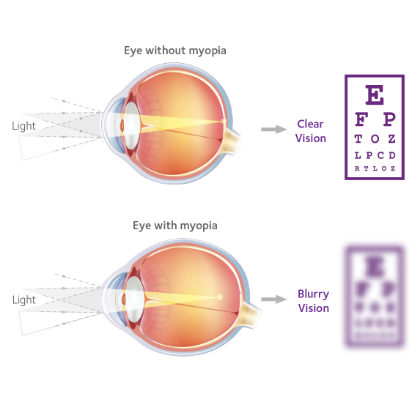
Myopia often worsens with age, and because of this, Violet’s parents were worried about the effects this could have on their daughter’s ice skating and her dream to skate for Team USA. A year after her initial diagnosis, her myopia worsened, and her parents decided to be proactive. They went to the optometrist to figure out what they could do to slow down the progression of her myopia. They were prescribed MiSight® contacts lenses, the innovative lens by CooperVision® for age-appropriate children who have myopia. These lenses are designed to correct distance vision immediately,5 while also helping to the control myopia progression6 with consistent use.
Since starting the lenses, Violet’s vision has remained at the same level. Violet has adapted to the lenses easily, saying “It only takes a minute to put them in.” The best part is that it doesn’t interfere with her training. Violet spends over 20 hours on the ice or training any given week, and MiSight® allows her to do so with confidence. “It makes me feel confident and reassured, because I don’t have to worry about my myopia progressing, and I know it won’t be an obstacle to reach my goals.”



